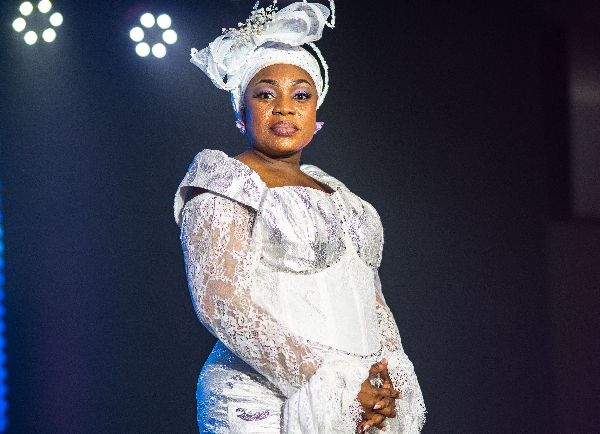After decades of failing to capture deep global interest, the NFL has an answer to a "daunting" problem: Olympic flag football - Yahoo Sports
Nearly eight years ago, sitting on a couch in a hotel room in California, Dallas Cowboys owner Jerry Jones had the concept of Olympic flag football on the tip of his tongue and just couldn’t find it.
In an expansive 1-on-1 interview with Yahoo Sports in the summer of 2017, Jones was discussing the growth of the NFL as a globally consumed sport when the subject of untapped markets was broached. At the time, the league was positioning itself to continue a robust international expansion of games in the U.K., mainland Europe, Canada and Mexico, with the ultimate goal of creating a 33rd NFL team through an international aggregate of games — in the hopes of eventually having what amounted to a full season’s slate of matchups played outside of the United States each season.
Advertisement
It was a shoot-for-the-moon dream that Jones and his fellow NFL owners thought could be achieved with persistence and measured purpose over the span of decades. But there was still a hanging thread that Jones couldn’t stop thinking about. Specifically, how to get traction for the NFL in places where it was nothing more than an oddity. It was a question that, back in 2017, was being focused through China — largely because the English Premier League and the NBA had cultivated that country’s hundreds of millions of potential fans in a way that the NFL could only dream of achieving.
“I don’t have a good answer on China,” Jones said in 2017. “It’s daunting.”
“The numbers are there [to draw the NFL in]. But what our challenge is — whether it be London or Mexico City, which I think are prime areas for expansion — our real challenge is how to whip things up and see if Shanghai wants to beat Beijing. Can it rile them up and can they have that kind of competition? If you’ve got a culture that can create that, then we’ve got potential.”
Later in the interview, Jones speculated that the answer might not be a NFL-down approach at all. That simply playing NFL games in the country isn’t enough to seed sustainable enthusiasm. Maybe what was needed was to find a way to simply introduce China to football in the most easy, organic way possible.
“It might be giving people a reason to pick up a football for the first time and just go outside to play with it,” he said. “Which really isn’t simple at all.”
Advertisement
What Jones was getting at was a singular idea that has long created the wall between true global interest in the NFL versus the aggressively targeted international traction that currently exists: Getting people interested in the game itself — or some version of it — rather than getting people interested specifically in the NFL.
Enter flag football and the grand stage of the 2028 Olympic Summer Games in Los Angeles. It's arguably the best answer the NFL has ever had to motivate the entire world to pick up a football and play with it — especially if some of the people picking up a football for their country also happen to be NFL players.
That’s what’s at stake during next week’s NFL spring meetings in Minneapolis, when owners will consider a proposal to allow the league’s players to try out for flag football teams in the 2028 Summer Games. If the proposal gains enough traction for a vote, 75% of the league’s owners — 24 of 32 — would have to approve the measure. And right now, when you talk to C-suite executives across the NFL, there appears to be some definitive support that goes beyond NFL commissioner Roger Goodell.
“This is a good of the game issue maybe more than the good of the team,” one NFC team president said. “But that’s what the league has always been built on. … It’s a great opportunity around the [Olympic] Games and gives the NFL unprecedented growth [opportunities] as well as an amazing lead into training camp.”
Advertisement
Added an AFC team president: “It’s a smart way — and I honestly believe a carefully thought-out way — to finally be part of that global stage every four years. I get the injury [concern], but every other major professional sport in America has been part of the Olympics for 30 years or more now. The NBA, NHL and Major League Baseball have all been able to shoulder that risk. Now [the NFL] can be a part of it with moderately less risk than what happens on an NFL field.”
While the logistics of making an Olympic flag football team while also playing in the NFL aren’t yet known, some of the guardrails are, among them:
Players like Jacksonville Jaguars receiver Brian Thomas Jr. (7) compete in flag football games at the Pro Bowl every year. Will we soon see NFL players in the Olympics? (AP Photo/Chris O'Meara, File)
(ASSOCIATED PRESS)
That’s still a rough outline of the hurdles to even make NFL player participation possible. And it clearly acknowledges that there will be some athletic risk involved — something that has also been shown in some youth flag football studies indicating injury rates to be far lower than contact football, but hardly injury free. Given that reality, there’s a palpable reticence inside the personnel executives whose entire world is a team-first mentality.
Advertisement
“Pandora’s box,” one longtime and high-ranking AFC executive said. “Think of the Robert Edwards injury years ago, blowing out his knee playing flag football on the beach.”
A 1998 first-round pick of the New England Patriots, Edwards put up 1,446 yards rushing and receiving and 12 total touchdowns as a rookie — only to have his career derailed after suffering a frightening knee injury playing flag football at the Pro Bowl. He barely avoided amputation after the injury and didn’t play again until the 2002 season, when he had a brief one-season comeback with the Miami Dolphins that saw him play sparingly.
That’s the flag football nightmare scenario for those who remember it, and it’s why some NFL contracts have clauses written into them that prohibit any participation in flag football. Of course, for a league trying to solve remaining barriers to global consumption — and crack Jerry Jones’ “daunting” question of how to get people in China to pick up a football — the potential rewards sometimes mitigate the potential risk.
And it’s not just the owners who are interested, either. George Atallah, a former high-ranking executive with the NFL Player’s Association for the last 16 years, has been talking to NFL players for years about the possibility of the Olympic experience. His vantage? If there are coaches and front office executives out there assuming star players won’t get on board with being an Olympian in flag football, they’re wrong.
Advertisement
“I disagree that stars won’t want to play,” Atallah said. “NFL players would be geeked. My opinion, from talking to players the last couple years about this, is that star players absolutely want to participate. And if the closest high-profile analog sport is the NBA, almost all of the players who have won a gold medal who are superstars, point to that medal as one of the top two highlights of their careers. And I think the same is going to be true for American NFL superstars. The gold medal, it just hits different when you’ve got the American flag behind it.”
In turn, Atallah noted, the sport itself hits different for the world population when it doesn’t require the necessity of a large amount of expensive equipment. He pointed to soccer being a worldwide phenomenon, and the fast absorption of basketball across the planet — which was largely aided by only needing a ball and something to aim for with it.
Advertisement
“The flag football opportunity gives the league a chance to grow the game with very little barriers to entry — for both players and fans,” Atallah said. “That’s the whole thing. Soccer, it’s a field and a ball. Basketball, it’s a ball and a hoop.”
Atallah also noted that flag football also takes away the gender barrier that has forever existed on the playing field in the NFL. So not only does it put a football in the hands of new fans watching it on the Olympics for the first time — it puts that ball in potentially every hand.
Every hand … possibly every country … revisited and grown in between every four years of a worldwide Olympic audience. Allowing NFL players to be a part of that may not be the NFL’s solution to finally breaking down doors to a truly global fan base, but it might be the best one yet. And that’s why it’s front and center on the agenda of NFL owners this week.











